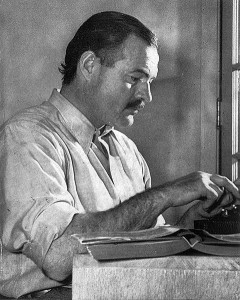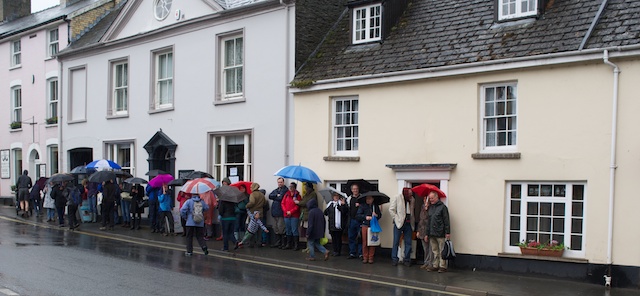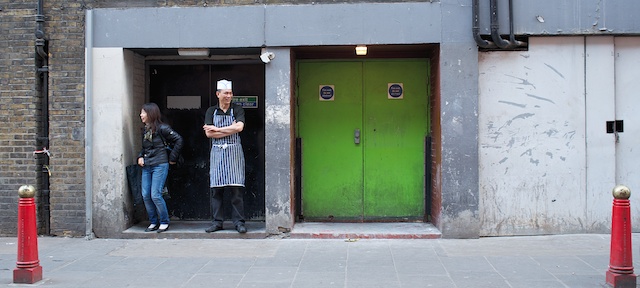The most annoying thing about most of the commentary on the European elections is that it is dominated (as usual) by people who are only interested in elections, and entirely uninterested in what is actually going on — and what in the long run it might mean for society. At the moment, for example, the British commentariat are obsessed with the question of whether Nick Clegg, the Lib-Dem Leader, will resign or be pushed out.
Strangely, it was Boris Johnson who got closest to the nub of it when he called the election result a “peasants’ revolt”.
The thing about the European project is that it was — and remains — a project of political and economic elites. Sometimes, elites have good ideas and do good things. The European Steel and Coal Community, for example, was a terrific idea. It fused the war-enabling industries of the Continent’s two great enemies, thereby ensuring that they would be unable to launch a third catastrophe on its peoples.
The ECSC was the brainchild of Robert Schuman and launched on 9 May 1950. Schuman — who was nothing if not an elite politician — declared that his aim was to “make war not only unthinkable but materially impossible” which was to be achieved by regional integration, of which the ECSC was the first step. The Treaty would create a common market for coal and steel among its member states which served to neutralise competition between European nations over natural resources, particularly in the Ruhr. It was on this admirable foundation that the European Community was built.
For decades the EU grew and expanded. But it was always an elite project. It was ‘democratic’ only in the sense that a country wouldn’t be considered for admission unless it had some kind of functioning democracy. But the Commission has never been democratically accountable in the normal sense of the word.
And then there’s the fact that ever since German integration and the 2008 banking crisis, the EU has become essentially a German operation. Voters may huff and puff, governments may protest and pout, but ultimately this is now a German show — as my wretched fellow-countrymen discovered when they realised that details of Ireland’s annual budget were available to members of the Reichstag before the Finance Minister revealed them to parliamentarians in Dublin.
So one way of reading the results is as an impotent anti-German gesture. It’s voters in smaller states giving the two-finger salute to Angela Merkel. This morning I heard one Spanish refusenik on the radio saying that he was damned if he would allow Spanish kids to become tapas waiters and cleaners for the burgomeisters of Frankfurt-am-Main.
The great achievement of the EU — as its evangelists see it — was the creation of the Single Market. One single marketplace as big as that of the US, with free movement of labour and capital. But now it turns out that that’s what Boris Johnson’s ‘peasants’ don’t like, because they realise that while it may work for banks and big corporations it’s not working for them — especially since 2008. Free movement of labour is all very well, but not if it involves Romanians and Bulgarians. As the Economist astutely puts it:
To truly know UKIP (and thus how to compete with it), the mainstream political parties need to look at its similarities with Eurosceptic and populist parties elsewhere in the EU. The parallels are striking, suggesting that its rise is about more than just a fumbled election campaign, peculiarly British policy debates or Britain’s island mentality. In different countries across the EU the same process was in motion on election night: the electoral coalitions that have traditionally propelled social democratic parties to power were fragmenting. Their voters were dispersing in various different directions. Some were turning to green parties like the Austrian Grünen, others to far left outfits like Syriza in Greece, and others were going to single-issue parties like the Feminist Initiative Party in Sweden. But a substantial segment of the old centre-left base—the older, white, post-industrial blue collar voters who feel economically and culturally marginalised—went to the Eurosceptic right: to parties (different though they may be in tone and emphasis) like the True Finns, the Front National and UKIP.
These socio-economic forces explain why such parties are almost universally hostile to globalisation and immigration, why they lean towards protectionism and why they engage in the sort of cultural politics that until recently was more common in America than in Europe. It also explains why they rarely thrive in large cities. In provincial towns, villages and suburbs around the continent, people whose jobs and livelihoods have been disrupted by immigration, outsourcing and automation no longer fit into the same social democratic “big tent” as urban professionals, ethnic minority voters, students and public-sector workers. The decline of the trade unions has further added to this sense of alienation from the centre-left establishment.
Britain shares all of these traits with other EU states. Consider, for example, the gulf between the declining former fishing and shipbuilding towns where UKIP did best (places like Grimsby, Great Yarmouth and Ramsgate) and booming, youthful, diverse London, where it was much weaker and where Labour obtained by far its most impressive results. The pattern was almost precisely mirrored in France and Denmark—in fact, in all three countries the main Eurosceptic party obtained 16 or 17% in the capital city but about ten points more nationally.
The people who voted for UKIP and the other populist parties across Europe last week don’t buy into the elite narrative about the debt crisis for the very good reason that it’s bullshit. We keep hearing soothing government and media baloney about how austerity is finally beginning to pay off, how our economies are finally beginning to “turn the corner”, etc. etc.
But, as one Irish voter put it, “I keep on turning corners and every time I get hit by a fucking train”. Irish voters were told that unemployment is finally beginning to come down, but when politicians tried that story on the doorsteps they found themselves facing people who know that those optimistic figures are bogus because (a) they’re based on counting every conceivable kind of non-employment (zero-hours contracts, for example) as “employment”, and (b) they all know somone in their neighbourhood whose kids have had to emigrate to Australia and New Zealand and other places simply to get by. (About 25,000 of these kids now leave Ireland every year, and one academic expert thinks that emigration may not have peaked yet, despite the supposedly rising tide of economic ‘recovery’.) And if the hapless canvasser had looked into the living rooms of these houses he’d have seen parents and grandparents Skypeing their kids on the other side of the world.
It’s impossible to know how things will pan out from here, but there is one racing certainty: the era of EU expansionism is over. Gone is the dream of an ever-more-perfect union. From now on the only game in town will be retrenchment, with governments across the Continent clamouring for the repatriation of powers. In that sense, the real victor from the UK elections may well be David Cameron. All of a sudden his idea of renegotiating the settlement with Brussels looks like becoming the fashion. And he may find that Merkel, anxious to limit the erosion of the EU, may turn out to be a more accommodating negotiator than she would have been even last month. Sometimes a week really is a long time in politics.



